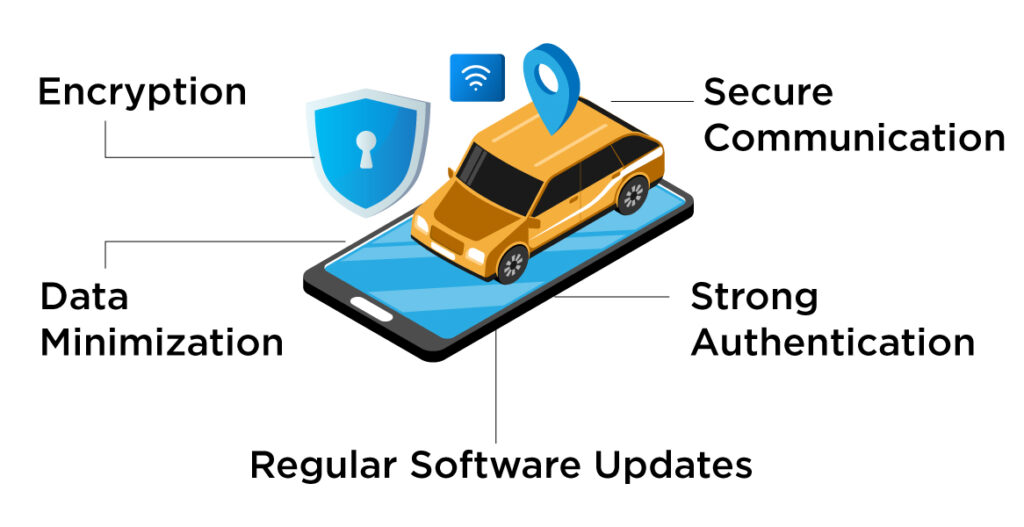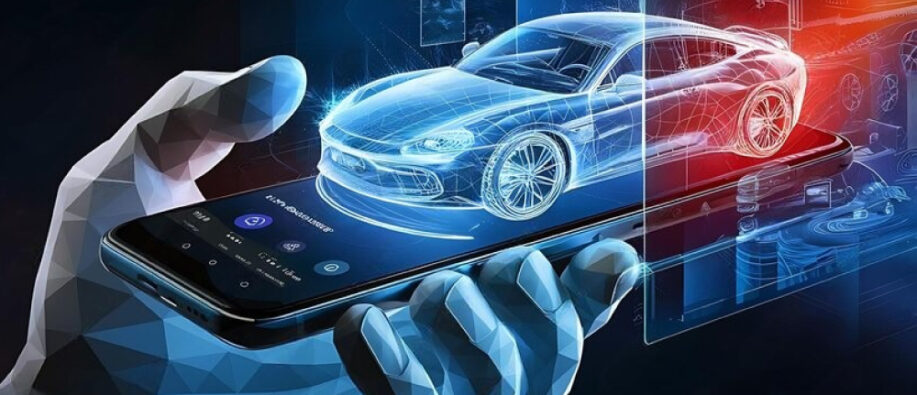Digitization has changed many industries, including the automotive industry. Due to this transformation vehicles have become smarter and more connected than ever before. They now have advanced technology that allows them to talk with other devices, the internet, and even other cars. This connectivity offers many benefits, such as better safety, improved navigation, and personalized experiences for drivers. However, it also brings up important questions about security, especially regarding automotive digital identity. Let's know how safe automotive digital identity is?
What is Automotive Digital Identity?
Automotive digital identity is a vehicle’s unique digital profile. This profile includes various information, such as the making of car, model, and features, as well as data about the driver and their preferences. It also includes details about the location of the car, its maintenance history, and driving behavior. This information is important for many smart features in modern vehicles, such as keyless entry, navigation systems, and emergency services.
A survey conducted by a source in 2023 found that 68% of consumers are concerned about the security of their personal data in connected vehicles. This indicates a significant awareness and concern regarding automotive digital identity.
Why is Security Important?
With the rise of connected cars, it is important to make sure about the security of automotive digital identity of that particular vehicle. To keep this information safe is important as there are chances it will create severe security problems. For example, hackers can unlock your car, steal it, or operate the systems while you are driving. Additionally, it will be a threat as personal data about the driver could be misused which leads to privacy breaches.
According to a published report, global cybercrime costs are projected to reach USD 10.5 trillion annually by 2025. The automotive industry is increasingly investing in technology to address growing cybersecurity concerns.
How is Automotive Digital Identity Secured?
Automakers and technology companies are aware of these risks and are working hard to protect automotive digital identities. Here are some of the key security measures they are implementing:

1. Encryption
Encryption is an effective method to secure data. This process involves converting information into a code that can only be read by someone with the right key. In the automotive world, encryption helps protect sensitive information, ensuring that even if hackers intercept data, they cannot easily understand it.
2. Secure Communication
Connected cars communicate with various networks, including the internet and other vehicles. To protect these communications, automakers use secure protocols. These protocols ensure that data sent between the car and external systems is encrypted and authenticated, reducing the risk of interception or tampering.
3. Regular Software Updates
Just like smartphones and computers, cars also need regular software updates to fix security vulnerabilities. Automakers are increasingly providing over-the-air (OTA) updates. This allows them to update software of a vehicle remotely. This helps ensure that cars are always equipped with the latest security measures.
4. Strong Authentication
To access a vehicle’s digital identity, strong authentication methods are essential. This means the sensitive information is accessed by authorized users only. For example, some cars use biometric authentication, like fingerprint recognition, while others may require a secure PIN or a mobile app for access.
5. Data Minimization
Another important principle in securing automotive digital identity is data minimization. This means collecting the information that is necessary for the function of a car. By limiting the amount of personal data stored in the vehicle, the risk of exposure in case of a breach is reduced.
Challenges in Securing Automotive Digital Identity
Despite these measures, there are few challenges in the security of automotive digital identity. Here are a few:
1. Evolving Threats
Cyber threats are constantly evolving. Hackers are always looking for new ways to use the weakness in connected systems. This means that automakers must stay ahead of these threats by continuously improving their security measures.
2. Third-Party Servicess
Many cars rely on third-party services for various functions, such as navigation or entertainment. Each of these services can introduce additional risks. If a third-party service is compromised, it could potentially expose the vehicle’s digital identity.
3. User Behavior
Sometimes, the security of automotive digital identity can be compromised by user behavior. For example, if a driver shares their vehicle’s access codes or does not update their software, it can create vulnerabilities. That's why it is important to educate users on how to handle digital identity.
The Future of Automotive Digital Identity Security
In future, more advanced technologies will be involved in automotive digital identity security. For instance, artificial intelligence (AI) could play an important role in finding and responding to threats in real-time. Additionally, as vehicles become more autonomous, ensuring the security of their digital identities will be even more critical.
Summing Up!
In conclusion, the security of automotive digital identity is a complex and evolving issue. While automakers are implementing various measures to protect this information, challenges remain. As cars become more connected and technology continues to advance, it is essential for both manufacturers and users to prioritize security. By staying informed and adopting best practices, we can help ensure that our automotive digital identities remain safe and secure.
To know more explore SecureITWorld!
Read More: How to Protect Your Digital Identity Online? The Best Practices





